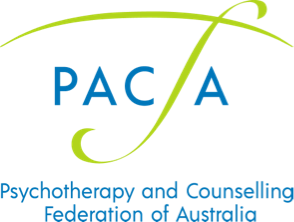Emotionally Focused Therapy
What is Emotionally Focused Therapy?
Emotionally Focused Therapy for couples, or EFT, is an evidence-based approach developed by Dr. Sue Johnson and Les Greenberg in the early 1980s. Their work provides a clear understanding of the bonds of love and how these bonds can be shaped to create more satisfying, loving relationships. Emotionally Focused Couples Therapy (EFT) helps you strengthen and deepen your relationship in a caring and supportive context, generating greater closeness, connection, and intimacy with those who matter to you most.
For couples looking to strengthen their relationship, EFT offers a unique way of focusing on each individual’s emotional experience. This approach also works on what happens between you and your partner in your day-to-day interactions with each other.
EFT can be used with individuals (Emotionally Focused Individual Therapy), couples/relationships, and families and aims to help people to express, explore and understand their reactions, behaviors, emotions, and thoughts; all with a view to helping them to connect with their deepest needs and with the people who matter to them. This then allows them to live more full, satisfying, and connected lives.
EFT therapists are supported by extensive research over the last 25 years demonstrating that most couples undertaking a course of EFT report substantial improvement and 70 to 75% of couples move from distress to recovery and approximately 90% show significant improvements in marital satisfaction. Clinicians Sarah Bergman and Sharon Irons rely on their in-depth training and clinical experience to help you identify the negative themes that play out in your relationship, and how they can be changed to achieve more satisfying outcomes.
EFT is usually a short-term (8-20 sessions), structured approach to relationship therapy.
What does EFT Couples/Relationship Therapy look like?
EFT is all about attachment. It focuses on repetitive often negative cycles of interaction that partners get caught in when they are triggered by what their partner is doing or saying. We refer to this as attachment panic which leads to reactive, rigid, and protective strategies that create distance and disconnect in the relationship. The negative cycle emerges as each partner makes their best attempt to get their emotional needs met, unfortunately, these well-meaning attempts often trigger the other to react defensively and serve to create distance and pain, rather than closeness and emotional safety. Most intimately connected people know the distressing patterns very well and often feel helpless to change the way they interact.
This is where EFT comes in. Instead of simply working on communication skills that can sometimes feel like a “bandaid” to the situation, EFT aims to help relationship members to see their negative cycle and exit it by sending more clear signals about emotional needs in ways that do not trigger the defenses and fears of their partner. EFT goes to the heart of the matter, by uncovering the deeper needs and fears that often go unheard and by helping partners express these to one another. This is how they create a positive cycle of connection, safety, and security. EFT is deeply moving, satisfying, and meaningful therapy.
Why choose EFT?
EFT is based on 25 years of validated studies on relationship distress and adult love. These ideas are supported by research into the nature of marital distress and adult bonding. It is collaborative and respectful of all clients and helps you create safe and supportive bonds. EFT has been shown to be effective for a variety of relationship problems and populations.
We are one of the HIGHEST-RATED services for couples counselling on the Tweed Coast & Gold Coast.
Emotionally Focused Therapy for Couples is a proven evidence-based couples counselling approach and has been noted by the New York Times as the relationship counselling methodology with the highest success rate! You will learn how to heal past hurts, communicate effectively and create a better future for you and your partner.

Attachment science offers us the most potent model for therapeutic change, especially when dealing with anxiety and depression, and that, of all models of intervention, EFT most closely captures the essence of the attachment perspective. It targets the defining feature of survival-oriented human connection, namely strong emotion, and systematically shapes core bonding interactions with others.






